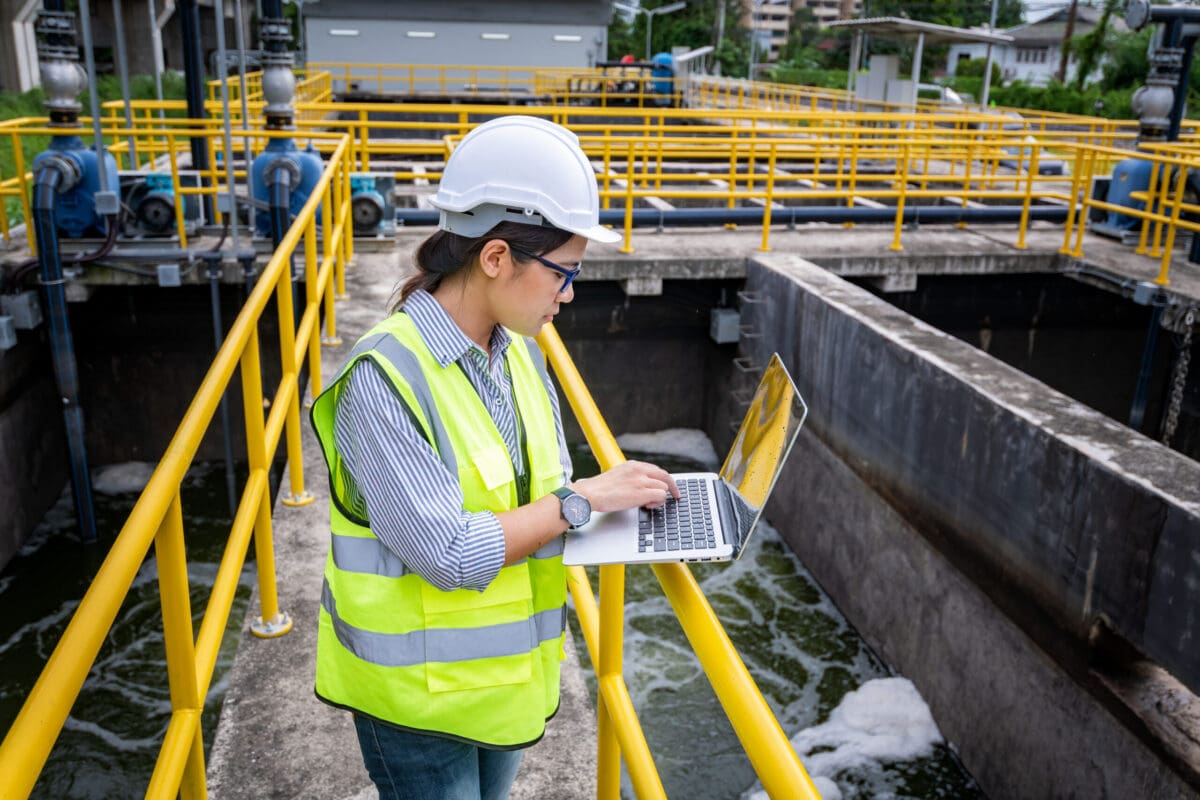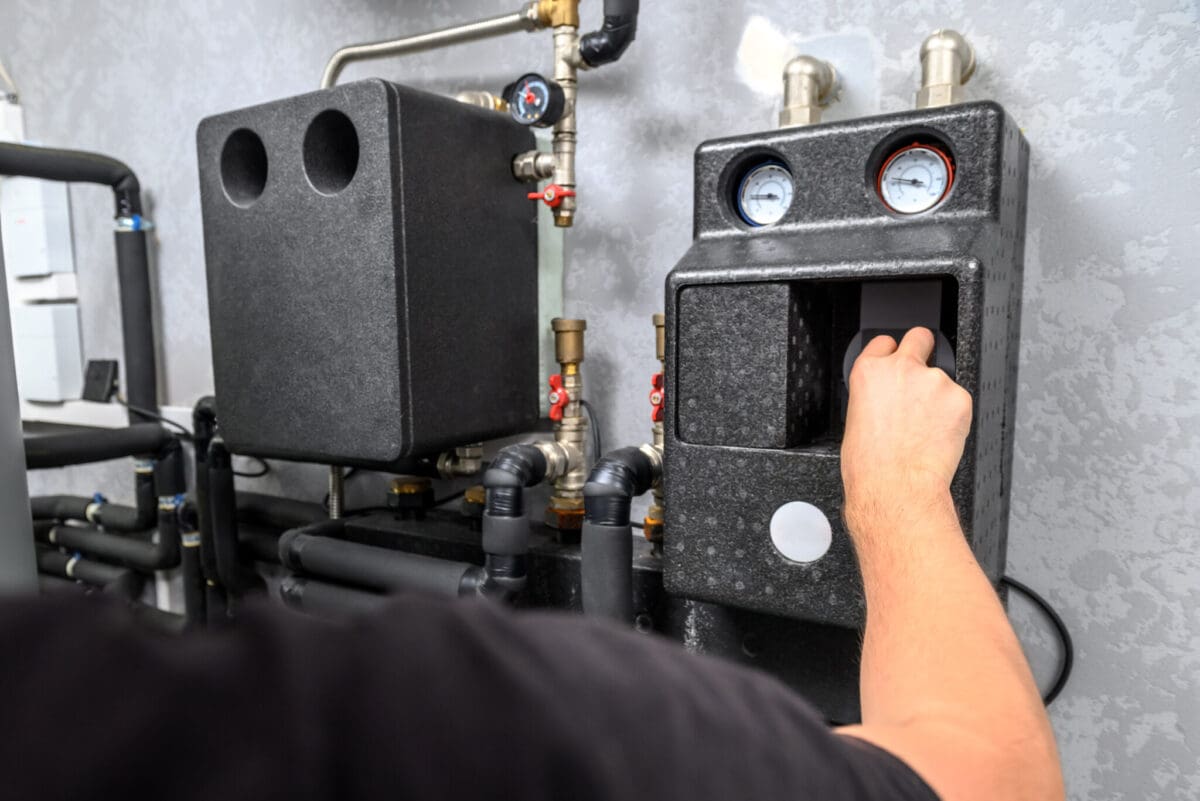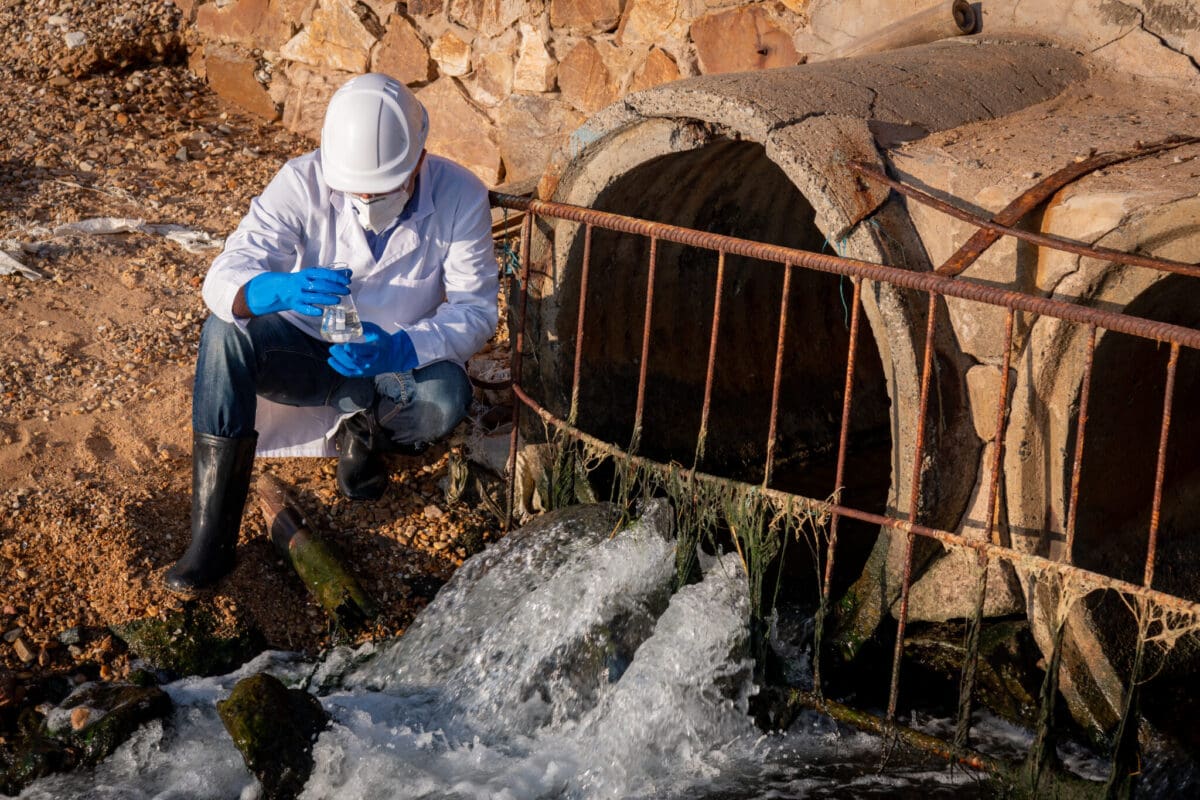
Environmental Engineering
Bachelor of Science
Engineer a cleaner world and lead
the charge in sustainable innovation.
A BS in Environmental Engineering is your gateway to making a significant impact on both the planet and your professional future. This dynamic, interdisciplinary program equips you with the skills to develop sustainable solutions for pressing environmental challenges. You’ll gain expertise in cutting-edge areas like renewable energy, pollution remediation, and sustainable urban development, ensuring you’re at the forefront of environmental innovation.
With a strong emphasis on practical applications, you'll learn to design systems that improve water and air quality, manage waste efficiently, and mitigate climate change impacts. As the green economy continues to grow, your role as an environmental engineer will be crucial in promoting sustainable practices across various industries. Embark on a career that not only promises financial stability but also allows you to contribute to a more sustainable and healthier world.
Program Overview
The Bachelor of Science in Environmental Engineering is a dynamic and interdisciplinary program aimed at preparing students to tackle the pressing environmental issues of our time. Rooted in the principles of engineering, environmental science, and sustainability, this program provides a comprehensive education in the design, development, and implementation of systems and solutions that protect and enhance human health and the natural environment.
Students will gain a deep understanding of the complex interplay between human activities and environmental ecosystems, learning to innovate in areas such as water and air quality management, water and wastewater treatment, pollution remediation, solid waste management, renewable energy systems, climate change life cycle analysis, climate change prevention and mitigation, and sustainable urban development.
Career Outlook
Earn your degree.
Unlock new opportunities.
Environmental Engineering jobs in the U.S., 2022.
Environmental Engineering average pay, 2022.
Projected growth for Environmental Engineering jobs through 2032.
Environmental Engineering jobs in the U.S., 2022.
Environmental Engineering average pay, 2022.
Projected growth for Environmental Engineering jobs through 2032.
*Source: O*Net.org/BLS.gov. Unity Environmental University cannot guarantee employment. Salary data represents averaged earnings for the occupations listed and includes workers at all levels of education and experience.
Experiential and Immersive Coursework

Environmental Regulatory Compliance for Engineers
This course covers environmental laws and regulations in engineering, focusing on air and water quality, waste management, and hazardous materials. Students learn compliance strategies, explore case studies, and discuss ethics and corporate responsibility.

Thermodynamics and Heat Transfer
This course covers thermodynamics and heat transfer principles, focusing on environmental process engineering applications like boilers, chillers, and heat pumps. Topics include energy conversion, refrigeration cycles, heat exchangers, and thermal system design.

Water and Wastewater Treatment
This course covers technologies and processes for treating water and wastewater in municipal and industrial settings. Topics include pollutant sources, physical separation, chemical and biological treatments, emerging contaminants, resource recovery, and sustainable design.
Degree Requirements and Courses
The BS in Environmental Engineering degree requires 120 credits. You may transfer in up to 90 credits from outside institutions. View our full course catalog for a better look into your program. Then apply online for free to get started.
Frequently Asked Questions
-
What is Environmental Engineering?
Environmental Engineering is a dynamic field focused on designing and implementing sustainable systems to protect human health and the environment. It encompasses water and air quality management, pollution remediation, waste management, renewable energy, and sustainable urban development, aiming to solve pressing environmental challenges through innovative engineering solutions.
-
What courses will I be taking?
General Education Core: 35 credits
Environmental Professional Core: 13 credits
Elective Courses: 3 credits
Program Core: 69 credits- CHEM 220 Organic Chemistry for Engineers
- CHEM 225 Environmental Chemistry for Engineers
- CIST 203 Robotics and Automation for Environmental Monitoring
- DATA 301 Data Management in Python
- DATA 302 Data Visualization Laboratory (1 cr.)
- ENGR 101 Introduction to Environmental Engineering
- ENGR 301 Fluid Dynamics
- ENGR 303 Water and Wastewater Treatment
- ENGR 305 Solid and Hazardous Waste Management
- ENGR 307 Thermodynamics and Heat Transfer
- ENGR 310 Environmental Regulatory Compliance for Engineers
- ENGR 313 Environmental Impact Assessment for Engineers
- ENGR 315 Environmental Modeling and Simulation
- ENGR 410 Biomimicry for Environmental Engineers
- ENGR 413 Air Pollution Control Engineering
- ESCI 303 Hydrology, Wetlands, and Water Policy
- ESCI 305 Environmental Remediation and Toxicology
- MATH 315 Calculus II
- MATH 325 Calculus III
- MATH 430 Linear Algebra
- MATH 435 Differential Equations
- PHYS 201 Physics I
- PHYS 202 Physics I Lab
- PHYS 203 Physics II
- PHYS 204 Physics II Lab
For course requirements and a better look into your program, view our full course catalog. Then apply online for free to get started.
-
How fast can I finish?
Our comprehensive 120-credit program can be tailored to fit your schedule and goals! Completion time is flexible, determined by the number of credits you choose to take each term (8 terms/year) and less time with transfer credits. Without transfer credits, you can anticipate the following completion times:
- 48 credits/year: Fast-track your education in only 2.6 years
- 30 credits/year: Achieve your degree in 4 years
- 24 credits/year: Complete in just 5 years
-
How much does it cost?
Your online education should be affordable and manageable. Thanks to our promise to keep tuition flat through 2030, you won't be burdened with unexpected increases or fees.
Our team of distance education concierges will work with you through the admissions process to help you plan and pay for your degree. Learn more about the costs here.
Program Features
High Value Education: Nationally recognized for the quality of our programs delivered at an affordable price.
Social Mobility: Unity ranks in the top 2% of colleges in the U.S. for fostering upward mobility.
Sustainability Core: All programs are commitment to sustainable practices, preparing you for a future of environmental awareness in all fields.
Flexible Learning: Balance work and education effortlessly by choosing when and where you want to study.
Flexible Start Dates: 8 start dates per year allows you to control your schedule
Personalized Guidance: Benefit from individualized academic and professional advising, where we are dedicated to turning your career and academic aspirations into tangible achievements.
Transfer-Friendly: Shorten your academic timeline, since we accept up to 90 credits to value your prior academic achievements.
Experts in the Field
At Unity Environmental University, our faculty is comprised of a wide range of environmental science experts who in addition to teaching, conduct their own research and various fieldwork.

Divya Loranger
Subject Matter Expert
Divya Loranger brings over 8 years of experience as a licensed environmental engineer and is passionate about safeguarding our planet for future generations. Specializing in groundwater and soil remediation, waste management, and regulatory compliance, she's dedicated to ensuring a sustainable future for all.
When she's not protecting the environment, you'll find Divya hiking through nature, diving into video games, and cherishing moments with her kids. Join Divya on a journey to make a real difference in the world.
Dan Goettel
Subject Matter Expert
Mr. Goettel graduated with an MS in Environmental Engineering from the University of Maine in 2015, and has nine years of wide-ranging consulting engineering experience in the field of environmental pollution remediation. He has experience with all of the major remediation technologies in use today including design, implementation, operations, maintenance and monitoring (OM&M) and client-facing roles with a current focus on sub-slab depressurization systems (SSDS).
He also has a primary focus of incorporating modern technologies, visualization techniques, and data management processes into remediation projects. He attained a graduate certificate in Computer Science from Johns Hopkins University in 2023 and is currently pursuing a Master's Degree in the same.












